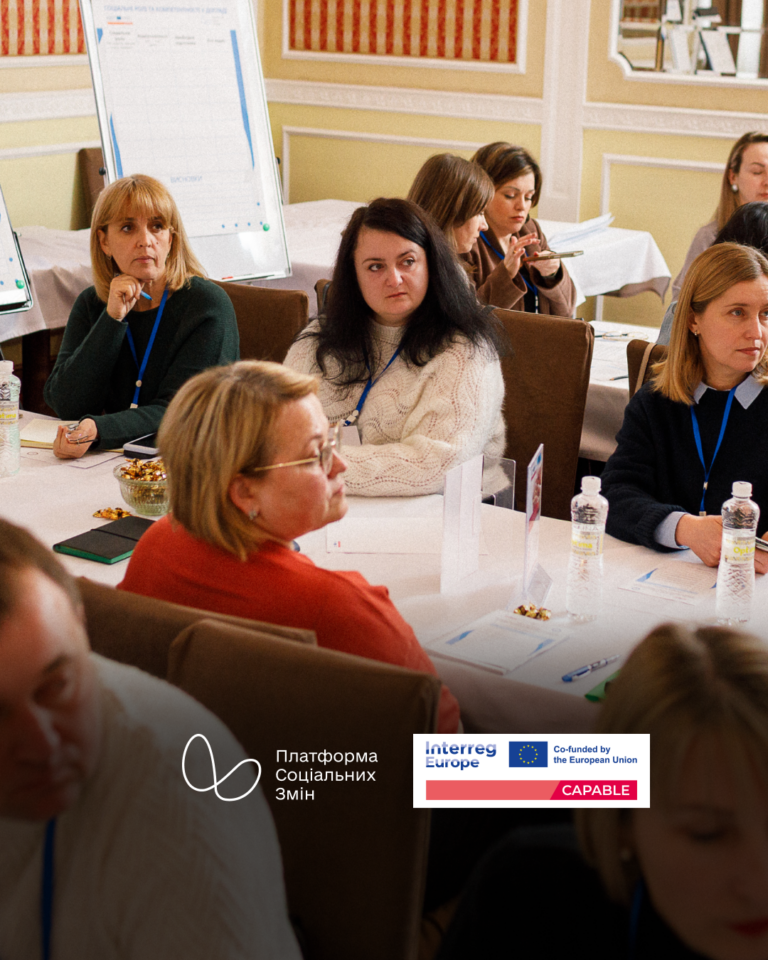5 Mistakes Social Enterprises Make at the Start — and How to Avoid Them
When you launch a social business, everything seems straightforward at first: you have an idea, a mission, and the desire to make a difference.
But just a few steps later, mild panic sets in — you no longer understand where to start, which direction to move in, or what actually matters most right now.
We work closely with individuals who establish social enterprises within their communities, schools, or support centers. And in nearly every story, we see the same “pitfalls” — ones that could have been avoided right at the beginning.
So we’ve gathered the five most common mistakes social entrepreneurs make at the start — and the simplest tips to help you avoid them and save your energy, time, and nerves.
Mistake 1: Starting Without a Clear Social Purpose
Many teams dive straight into creating a product: someone opens a café, someone launches a workshop, someone sets up a youth space. But in this rush, the main question often gets lost — what exact problem are we trying to solve?
When this understanding is lacking, the initiative becomes merely a “pleasant project,” rather than a social enterprise with a meaningful impact.
We’ve seen this happen in our Accelerator. One team viewed itself as a regular farming business for a long time. Then they realized that their real value wasn’t the berries they grew — it was the fact that they were giving people in their village jobs and the opportunity to stay at home instead of going abroad for seasonal work.
After that realization, everything changed — from their communication to how they planned their daily work.
So if you’re starting out, ask yourself one straightforward question:
“Whom am I helping, and what is my real contribution?”
A clear answer to this is the “foundation” that makes it much easier to build a business that truly creates change.
Mistake 2: Ignoring the Financial Model
Social entrepreneurship is about meaning and values, but without solid financial support, those values won’t last long.
Many teams avoid talking about money at the beginning — as if it’s something “not quite appropriate” when you want to do good. But profit isn’t about greed. It’s about the ability to stay alive, grow, and support people not just for one season, but for years.
We often see another scenario: teams pour all their energy into the product but don’t calculate expenses, don’t understand how to price correctly, or simply postpone this “for later.” And then, a few months in, they discover they don’t have enough money even for basic needs.
To prevent this, start with a few straightforward steps:
— calculate your cost price,
— understand your break-even point,
— check how your mission aligns with the economics of your business.
And yes, even the simplest “income-expense” spreadsheet can save you from many surprises. It answers the key question: Will your idea survive for a year, two, or five — and will you be able to keep helping people instead of barely getting by each month?
Mistake 3: Doing Everything on Your Own
Social entrepreneurs often try to “pull” everything by themselves: come up with the idea, buy materials, run social media, negotiate with partners, calculate expenses — all on one person’s shoulders. At first, it seems faster and easier this way, but eventually it becomes exhausting.
We often see teams that, in the beginning, work non-stop, passionately devoted to their project, but they don’t allow themselves rest and don’t ask for help. The result? Burnout, loss of motivation, and a pause in development. And this isn’t about laziness or weakness — it’s simply about human limits.
We constantly repeat: social business is a team sport. When at least one more person appears beside you — a volunteer, mentor, partner, or simply someone who cares — the pace immediately changes. The business moves forward more steadily, confidently, and with much less stress.
If you catch yourself thinking, “I’m doing everything here myself,” stop for a moment and consider: which tasks from this list could someone else take on?
Sometimes, a single conversation with a colleague or friend is enough to reveal a different path, provide support, or let you breathe a little easier.
Mistake 4: Not Listening to Your Customers’ Needs
Initially, it often feels like we know our customers perfectly. We rely on intuition and experience, thinking: “I like this — so others will too.” But reality sometimes hits hard: even a great idea may fail if it’s not aligned with what people truly need.
We had a similar case in our Accelerator. A team ran a sewing workshop and made excellent eco-friendly souvenirs. Everything looked perfect: sustainable, handmade, local. But sales… well, let’s say they weren’t taking off.
During the training, they conducted a small survey among local residents and organizations — just a few simple questions, nothing complicated. And suddenly, they discovered a massive need in the region for adaptive clothing for people with disabilities and older adults. There was almost no such product on the market, but the demand was definitely there.
The team shifted their focus, tested several models, and soon received their first stable orders and returning customers.
Do I really know what my customers want?
Sometimes, a few conversations or a brief survey can reveal more than lengthy reports and unsubstantiated assumptions.
Mistake 5: Being Afraid to Scale
Many social entrepreneurs stay in their “comfort zone”: they launch a good initiative, gain regular customers — and then stop. It appears that further growth requires additional resources, personnel, or expertise. In reality, it’s enough to gradually try new formats, partnerships, or markets.
Scaling doesn’t always mean significant investments or opening new branches. Sometimes it’s simply expanding your customer base, moving online, or joining forces with another initiative.
The key is not to get stuck thinking “it’s too early for us.”
Scaling is a process, not a leap. And it begins with small, steady, but brave decisions.
Conclusion
Everyone who launches a social business goes through doubts, mistakes, and constant searching. This is an entirely normal part of the journey. What matters is not stopping, but instead supporting one another and remembering that meaningful change begins with the small steps we take every day.
At the Platform for Social Change, we share real experience and support those who are building meaningful initiatives in their communities. If you’re starting out or are already ready to move forward, join our programs. Here you’ll find people who have already walked this path and the support that will help you move ahead with confidence.



